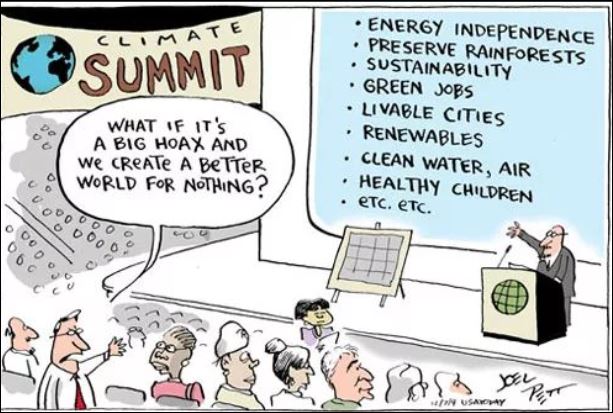Letter below was submitted to the Bernardsville News on 05-09-20 and published on line on 05-11-20. There was no print edition that week. Two related issues that it did not address are
- decades of political and military involvement in the Middle East, because of our dependence upon foreign oil, and
- the threat of new pipelines across New Jersey.

Bill Allen 06-12-20
EDITOR
“Clean air in Europe during lockdown leads to 11,000 fewer deaths”
This headline in The Guardian caught my attention on April 30. During this time of the coronavirus there has been a worldwide reduction of traffic and industrial activity. Air quality has improved dramatically.
Medical scientists estimate the number of deaths from respiratory and other problems that are aggravated by polluted air, and they are now seeing a significant reduction in these problems. The estimate of 11,000 fewer European deaths is for 30 days and is from the Center for Research on Energy and Clean Air.
I have for many years written about global warming and the associated problems of climate change, sea level rise, and ocean acidification. I have argued that we must slow and eventually stop burning fossil fuels, that produce carbon dioxide, that rises into the atmosphere, where it acts as a greenhouse gas and contributes to global warming.
When I saw the headline, I realized that I had not written recently about the other benefits we will enjoy when we stop burning fossil fuels. Even if the climate scientists are wrong—and I don’t think they are wrong—and global warming turns out to be much less of a problem than we now fear, we will not be sorry if we stop burning fossil fuels.
This is the “no regrets” argument.
There follow examples of things that we will have fewer of—and don’t want—as we make the transition to a world where we won’t burn fossil fuels.
Mining and drilling for fossil fuels can destroy important parts of the natural world.
- During the thirty years through 2015, mountaintop removal to extract coal destroyed about 1,100 square miles of forest and streams in Appalachia, a land area exceeding that of Somerset, Morris, and Middlesex Counties in New Jersey.
Mining and drilling for fossil fuels is dangerous for the environment and for humans.
- Starting in 2009 fracking and waste water disposal caused 2,000 earth quakes in Oklahoma. Some cracked walls and dislodged bricks.
- Fracking for natural gas polluted wells and caused cancer in western Pennsylvania.
- In 2010 an explosion at the Upper Big Branch Mine in West Virginia killed 29 miners.
- About 1,000 miners die every year from black lung disease.
- In 2010 the Deepwater Horizon oil rig blew up in the Gulf of Mexico. The explosion and fire killed eleven people and allowed 130 million gallons of oil to flow into the gulf. Clean-up has cost $71 billion. Much environmental damage remains.
Transporting fossil fuels is dangerous for the environment and for humans.
- In 2010 a pipeline leaked tar sands oil into the Kalamazoo River in Michigan. Cleanup work continued for four years. Much oil was left behind because removal would have caused more environmental damage.
- In 2013 a train of 74 oil tank cars rolled down an incline into the town of Lac-Megantic in Quebec, then crashed and exploded. Forty seven people were killed. Of 69 buildings in the center of town, 30 were destroyed in the explosion and fire; 36 were later torn down because of oil contamination; only three survived the catastrophe.
It is also dangerous to store and use fossil fuels.
- The Porter Ranch underground storage facility near Los Angeles began to leak natural gas in October 2015. It leaked for four months. Over 11,000 people were forced to leave their homes for reasons of health and safety.
- In 2018 leaks from accidentally over-pressurized gas lines in towns near Boston ignited about 80 fires, killed one person, injured 20, and forced 30,000 to evacuate their homes.
Burning fossil fuels causes health problems.
- Polluted air aggravates respiratory and other health problems, like those reported at the beginning of this letter. An estimated three million people die worldwide from these problems each year. Most air pollution is caused by burning fossil fuels.
- Mercury in emissions from coal fired power plants falls into water, moves up the food chain to pregnant women who eat fish, and then causes development disorders in their children.
- Evidence grows that people who live in communities with relatively poor air quality are more likely to become seriously ill or die, when infected with the coronavirus, than those in communities with good air quality.
Fossil fuels can be dangerous even after they are burned.
- In 2014 a storage pond for a power plant leaked 39 thousand tons of coal ash and 27 million gallons of ash pond water into the Dan River in North Carolina. Coal ash contains toxic chemicals like arsenic, chromium, lead, and mercury.
All these examples are consequences of burning fossil fuels. Let’s move as rapidly as we can to a world where we won’t burn them. We will have no regrets.
Bill Allen 05-09-20
